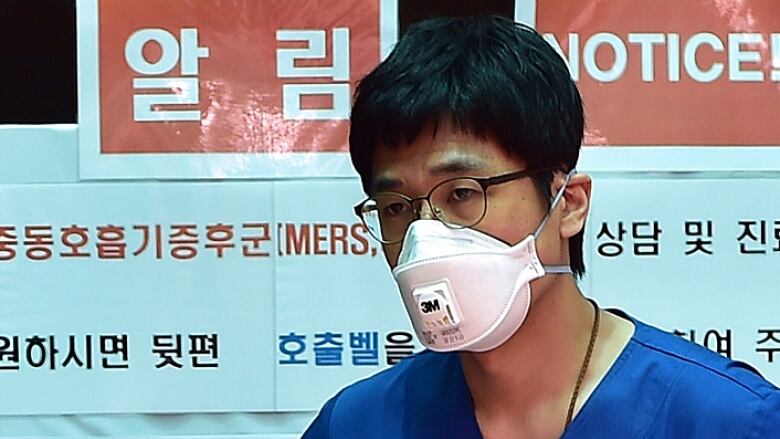MERS primer: what you need to know
Middle East respiratory syndrome a growing concern

The recent arrival of MERS or Middle East respiratory syndrome in South Korea has focused attention on the viral infection.
In June 2015, the World Health Organization called MERSin South Koreaa wake up-callthat should remindall countries to always be prepared for the possibility of outbreaks. It is not aninternational public health emergency.
The outbreak itself is largest in the Arabian Peninsula, particularly in Saudia Arabia. The WHO said that since April 2012 and as of June 17, 2015, it's been informed of701 confirmedcases worldwide.
What is it?
MERS is caused by the Middle East respiratory syndrome coronavirus. A coronavirus cousin caused the 2003 SARS outbreak.
What are the symptoms?
Typical MERS symptoms include fever, cough and shortness of breath, the World Health Organization says. Pneumonia is common, but not always present. Gastrointestinal symptoms, such as diarrhea and vomiting, have also been reported. The Public Health Agency of Canada's list of symptoms also includes muscle aches and chest pain.
About 36 per cent of those infected have died, WHO said in June 2015.Most of the people who've diedhad underlying medical conditions and weak immune systems, the Public Health Agency of Canada says on its website.
Some patients have described it as a mild respiratory illness.
When did it emerge?
It was first reported in September 2012 in Saudi Arabia.
How is it transmitted?
This hasn't been completely nailed down. The virus spreads between people who are in close contact, such as family membersexposed to the bodily fluids of a sick loved one.It has also been transmitted to health-care workers providing unprotected care to an infected patient.
There haven't been any documented cases of the virus being contagious without close contact, such as sitting next to someone on an airplane.
What is the source of the virus?
The MERS coronavirus has been found in camels. How humans catch the virus from camels is unclear, and not all patients have reported contact with the animals.Health authorities urge people to avoid unpasteurized camel milk and cheeses and to eat camel meat only when it is well-cooked.The virus has also been found in a bat in Saudi Arabia.
What does the outbreak mean for travellers?

- Check your vaccinations are up to date.
- Avoid people who are clearly ill.
- Wash your hands frequently.
- Practise the "Canadian salute" of coughing and sneezing into your elbow.
- Stay home when sick.
- Check for any symptoms after travel to the Arabian Peninsula.
The cases are a public health concern given that the Islamic month of Ramadan, which starts in mid-June this year, is historically a time when three to four million pilgrims travel to Saudi Arabia, said Dr. Kamran Khan, an infectious disease physician at Toronto's St. Michael Hospital.
Khan suggested that travellers to Saudi Arabia talk to their health-care provider about the risks, be aware of exposure to camels, camel milk or meat and visits to health-care institutions and watch for any symptoms for two weeks after returning.
If any symptomsdo appear, it's important to tell your health-care provider about your recent travel history and that of family members.
What is the treatment?
While there are currently no vaccines or specific treatments, people with MERS can seek medical care to help relieve symptoms.












_(720p).jpg)


 OFFICIAL HD MUSIC VIDEO.jpg)
.jpg)



























































































